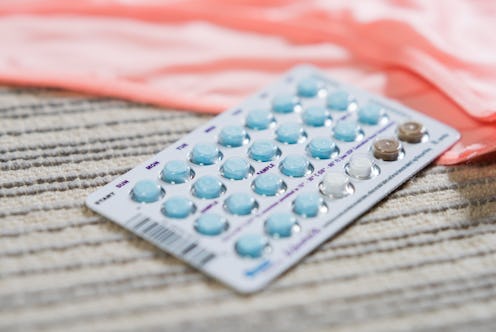Life
Why We Need To Talk More About How Birth Control Affects Our Lives

Today is the fifth annual Thanks, Birth Control Day! It is a day that The National Campaign to Prevent Teen and Unplanned Pregnancy (The National Campaign) invites you to join the conversation about all that birth control makes possible for women, men, families, and our nation. Thanks, Birth Control Day is meant to remind every one of what we all know deep down — birth control is a big deal. It makes so much possible for so many people and it deserves to have all the positive attention imaginable, not just today, but every day.
Personally, I can’t help but reflect on my role as a woman CEO. Leading this organization for the past two years have given me the opportunity to consider how important it is to be working in a field that empowers and activates the next generation of women leaders, change-makers, and mothers. All of our work at The National Campaign helps to ensure that all young women — no matter who they are or where they live — have the power to decide if, when, and under what circumstances to get pregnant.
It’s no secret that the one thing that has unquestionably most revolutionized our reproductive autonomy is birth control. In 1972, the Supreme Court made birth control legal for all women — regardless of age or marital status, and since that time, it has been a game-changer for women, children and society. Studies show that the availability of birth control contributed to 30 percent of the wage gains made by women between the 1960s and the 1990s. Before 1972, there were no female CEOs of Fortune 500 companies. Today, there are more than 30. In 1970, only eight percent of women were college graduates, and now that number has more than quadrupled, with 33 percent of women graduating from college.
And if that’s not enough reason to have you thanking birth control every day, consider that we have seen a 67 percent decline in the teen birth rate since 1991 and an 18 percent decline in unintended pregnancies between 2008 and 2011. Researchers strongly credit more contraceptive use as the key driver of these declines.
The only way to protect this groundbreaking and life-changing advancement is to make sure everyone knows how critically important it is.
For those of you who care about the bottom line, consider that we save $7 for every public dollar we spend on birth control. Not only is birth control good for women’s health, equity, and progress, but it’s also good for children, for the economy, and for your wallets.
For all of these reasons — and so many more — we are asking you to say, Thanks, Birth Control with us this year. Tell the world why you’re thankful for birth control. Share how it has empowered your life. From clearing your acne to finishing your education to planning your family on your own terms, what has birth control made possible for you? Get on social media and spread the love using #ThxBirthControl today and every day this year! Millions have participated in Thanks, Birth Control over the past four years including everyone from Dr. Drew Pinksy to Hillary Clinton.
I was just three years old when the Supreme Court made birth control legally available to all women. I was a part of the first generation that enjoyed the freedom that made it possible for me to live my best life story. I’m sharing my love for birth control and I’m asking you to do the same — the only way to protect this groundbreaking and life-changing advancement is to make sure everyone knows how critically important it is.
So let’s get active, get educated, and get loud. Join us today, for Thanks, Birth Control Day (#ThxBirthControl), on Twitter, Instagram, Facebook, and everywhere else! Share what birth control has made possible for you, your friends, and families.
Ginny Ehrlich is CEO of The National Campaign to Prevent Teen and Unplanned Pregnancy